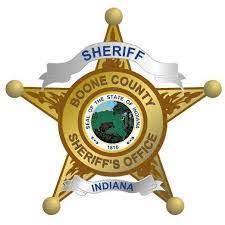The Boone County Traffic Safety Partnership announced that it will conduct a sobriety checkpoint tonight, Friday, Sept. 6 as a means of maintaining the safety of the Boone County area based upon statistics and analyses of prior infractions in the area.
The sobriety checkpoint is expected to be conducted this evening and throughout the night, Friday, Sept. 6 at Whitestown Parkway and Veterans Drive in Whitestown.
According to the National Highway Transportation Safety Administration, around 37 people in the United States die in drunk-driving crashes every day, which equates to one person every 39 minutes. As well, in 2022, 13,524 fatalities in motor vehicle traffic crashes were reported where at least one driver was alcohol impaired, which represented 32% of all traffic fatalities in the United States for the year.
Traffic fatalities in alcohol-impaired-driving crashes have reportedly decreased by 0.7% from 2021 to 2022 as reports showed fatalities decreasing from 13,617 to 13,524. As well, the administration reported that 21-year-olds to 24-year-olds marked the highest percentage of alcohol-impaired drivers involved in fatal crashes compared to other age groups in 2022 at 29%.
The administration states that drivers are considered to be alcohol-impaired when their blood alcohol concentrations are .08 grams per deciliter or higher.
Per the latest available 2021 Indiana Crash Facts Book, Indiana collisions that involved an alcohol-impaired driver accounted for 2% of all Indiana collisions in 2021, and 11% of all fatal collisions.
The average number of alcohol-impaired collisions per county was 41, and the average number of fatal alcohol-impaired collisions per county was 1.
From Jan. 1, 2024 through July 7, 2024, there have already been 46 DUI arrests in Boone County.
The Sheriff’s Office stated that checkpoint sites are selected based upon an analysis of available crash and impaired driving arrest data, consideration for officer and public safety, public convenience and to detect and deter impaired driving. At a sobriety checkpoint, law enforcement officers will be stationed to evaluate drivers for signs of alcohol or drug impairment at a specific point along the roadway, which depends upon the support of a local property owner for the use of appropriate land.
Vehicles are reportedly stopped in a specific, planned sequence that depends on the number of officers available to staff the checkpoint, traffic congestion and other safety concerns.
Upon making contact with the driver, the officer advises the driver that they have been stopped at the BCTSP sobriety checkpoint and asks the driver for their driver’s license and registration.
If in the course of the contact, the officer detects the driver may be impaired, or some other issue arises, the vehicle/driver is directed into a pull-off area for further investigation.
Further investigation may involve the Standardized Field Sobriety Tests.
On the other hand, if all looks right during the initial contact, the driver is often on his or her way in less than two minutes.
The department reported that officers staffing the sobriety checkpoints are working on an overtime basis, receiving pay from grants from the National Highway Traffic Safety Administration through the Indiana Governor’s Council on Impaired and Dangerous Driving.
Sobriety checkpoints are conducted in 37 states beginning in 1990 when the U.S. Supreme Court ruled that if the checkpoints are conducted property, they do not constitute an illegal search and seizure. In the 2002 case of State v. Gerschoffer, the Indiana Supreme Court reportedly found that sobriety checkpoints were constitutional if they meet the requirements, and the Boone County Prosecutor’s Office has been consulted to ensure that each checkpoint meets the constitutional requirements.
The Boone County Traffic Safety Partnership is comprised of the Boone County Sheriff’s Office, Jamestown Police Department, Lebanon Police Department, Thorntown Police Department, Whitestown Police Department and Zionsville Police Department.
The BCTSP’s participation in CITLI, DUITF and VSET will address the problem of decreasing the number of motorists killed and injured on Indiana roadways related to seat belt usage, impaired driving, distracted driving, aggressive driving and speed.

